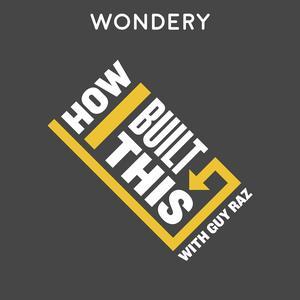Intro
In this episode of the PBD Podcast, the host provides a recap of the GOP Presidential Debate held in Miami. The debate had an impressive set design and showcased various candidates vying for the Republican nomination. The host delves into the key moments, winners, losers, and the media’s portrayal of the event.
Main Takeaways
Impressive Set Design and Venue
- The GOP Presidential Debate Recap was held in Miami and had an impressive set design.
Vivek Ramaswamy’s Strong Performance
- According to a poll with 144,000 votes, Vivek came out on top with 83% of the votes.
- The opening statement made by Vivek shook the audience as he criticized the Republican establishment for being a party of losers.
- Vivek was the unanimous winner and shined in the debate, giving credit to the Santas and Tim Scott multiple times.
- Vivek was so captivating that even his opponents were impressed with him.
Media’s Portrayal vs. Actual Vibe
- The media’s portrayal of the debate differed from the actual vibe of the event.
- The media establishment was called out for rigging elections.
Tension Within the Party
- There was tension within the party, with comments made about individuals such as Ron and Haley.
Engaging Debate Moderators Needed
- The need for more engaging and relevant debate moderators was highlighted.
Top Performers and Losers
- Vivek Ramaswamy and Nikki Haley were strong performers, with Vivek showing himself very well and Nikki being good at pulling stats out of her head.
- Ron DeSantis looked presidential and finally looked like a candidate, while Christie was just kind of lame and Ron didn’t have the “it” factor.
- VVEC was considered the loser by most media outlets, including The Hill.
Political Commentary and Polls
- Pat is not winning in leftist or Republican polls, but he is showing a Trump-like attitude.
- Polls can be unreliable.
- Democrats may not want successful people of color, but rather entitled people of color.
Future of Politics and Debates
- The format of hosting political events is likely to change in the next 4-12 years, as things are already evolving with new streaming partners like Rumble.
- Moderators are likely to change in the next four years due to the demand from people, especially those who are paying attention to podcasts.
- The timing and venues of political events are likely to change to allow more regular Americans to participate.
Summary
Impressive Set Design and Vivek’s Strong Performance
The GOP Presidential Debate Recap took place in Miami and featured an impressive set design. Vivek Ramaswamy emerged as the standout candidate, winning a poll with 83% of the votes. His opening statement, in which he criticized the Republican establishment, shook the audience. Vivek’s captivating performance impressed even his opponents, and he gave credit to the Santas and Tim Scott multiple times.
Tension Within the Party and Media’s Portrayal
The debate highlighted tension within the party, with comments made about individuals like Ron and Haley. The media’s portrayal of the event differed from the actual vibe, and the media establishment was called out for rigging elections.
Engaging Debate Moderators and Top Performers
The need for more engaging and relevant debate moderators was emphasized. Vivek and Nikki Haley stood out as strong performers, with Vivek showcasing himself well and Nikki impressing with her ability to recall stats. Ron DeSantis looked presidential, while Christie fell short. VVEC was considered a loser by most media outlets.
Polls, Political Commentary, and Future of Politics
Polls were deemed unreliable, and there was discussion about Democrats’ preferences for entitled people of color rather than successful ones. The future of politics and debates is expected to undergo changes, with new streaming platforms like Rumble and demands for different moderators and venues.
Conclusion
The GOP Presidential Debate Recap provided insights into the performances, winners, losers, and media portrayal of the event. Vivek Ramaswamy stood out as the top performer, while tension within the party and the need for more engaging moderators were highlighted. The future of politics and debates is expected to evolve, catering to the demands of the audience and incorporating new platforms.
